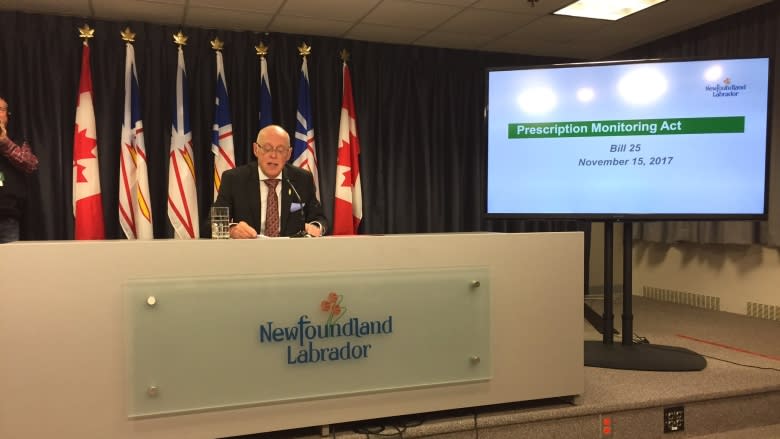Privacy commissioner raises concerns over proposed provincial prescription monitoring plan
The province of Newfoundland and Labrador's protector of information and privacy has a few concerns with the newly drafted Prescription Monitoring Act the Liberal government hopes to make law early next year.
Donovan Molloy, the Information and Privacy Commissioner, put out a news release to make sure the public was fully aware of what the proposed legislation could mean.
"I take Minister Haggie at his word that this is intended to be used to deal with the current opioid crisis," Molloy said to CBC.
"But of course people change, governments change, ministers change. We have to be concerned about the future potential and about somebody who might want to use it for a different purpose."
On Wednesday, Health and Community Services Minister John Haggie announced the new prescription monitoring plan. The program aims to cut down on "questionable prescribing" by flagging people who have visited multiple doctors or pharmacies in search of opioids.
Molloy has no issue with trying to tackle an opioid crisis that's currently killing Canadians.
"We agree that opioid use and abuse is a significant societal concern and warrants some intrusion upon the privacy of personal health information," he said.
"As it stands now it's significantly open, more open than necessary, to adding other classes of drugs where, perhaps, there isn't the same societal concern."
In a news conference on Nov. 15, Haggie told reporters the intent is not to police medical professionals but help educate them.
"It's to give prescribers and dispensers access to information about their patients," the health minister said.
"This will then assist them in making the best possible healthcare decisions for those patients."
If the plan becomes law the information gathered can be shared with police.
Molloy said there isn't any personal issue with Minister Haggie, or any member of the department of health, but speaking up is about him doing his job, protecting the privacy of the people of the province.
"We are going to emphasise, whenever we can, the importance of maintaining privacy," he said.
"Especially with personal health information, which, frankly, people regard as the most private of all their information. Perhaps more private than their financial information and social insurance numbers."
If the proposed law is passed it would take effect Jan. 1, 2018.



